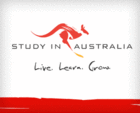CANADA
Universities in Canada
This section takes you through the list of Colleges and Universities in Canada. It starts with tips on finding the program that’s right for you and ends with choosing the right university.
Career Colleges in Canada
• The Art Institute of Vancouver – Burnaby
• Art Institute of Vancouver – Dubrulle International Culinary Arts
• Art Institute of Vancouver, The
• Century College (Vancouver)
• Pattison College
• Pattison College – Toronto
• Sprott Shaw Community College
• Academy of Learning
• Automotive Training Centres
• Blanche MacDonald Centre
• Fashion and Make-up College
• Bond College of Business & Technology
• Bow Valley College International Education
• Cambridge College
• Cambridge Institute of Science and Technology
• Canadian Business College
• CDI Education Corporation
• Corporate Communications Training College Ltd.
• Imperial Hotel Management College
• Information Systems Institute
• Kingston College
• Pacific Institute of Culinary Arts
• The Canadian College of Naturopathic Medicine
• Toronto Institute of Pharmaceutical Technology
• Vancouver Film School
• Vancouver Premier College of Hotel Management
• Xincon Technology College of Canada
• York College of Business
• York College of Industry and Technology
Technical Colleges in Canada
• Algonquin College of Applied Arts and Technology
• BCIT – British Columbia Institute of Technology
• Canadian International College
• Capilano College
• College Montmorency
• College of New Caledonia
• Columbia College
• Conestoga College
• Coquitlam College
• Fanshawe College of Applied Arts and Technology
• Humber Institute of Technology and Advanced Learning
• LaSalle College International, Vancouver
• Mohawk College of Applied Arts and Technology
• Mount Royal College
• Niagara College Canada
• Red Deer College
• Selkirk College
• Sheridan College
• Southern Alberta Institute of Technology (SAIT) International Centre
• St. Clair College
• Cambrian College of Applied Arts and Technology
• Camosun College
• Cegep Marie-Victorin
• College Jean-de-Brebeuf
• College of the North Atlantic
• College of the Rockies
• Confederation College of Applied Arts and Technology
• Douglas College
• Durham College, Oshawa Campus
• ÉduQuébec – Régions
• Fleming College
• Georgian College of Applied Arts and Technology
• Grande Prairie Regional College International Education
• Institut Teccart
• Lambton College
• Langara College
• North Island College
• Northern Alberta Institute of Technology
• Northern Lights College
• Red River College
• Seneca College of Applied Arts and Technology
• St. Lawrence College
• Yukon College
Universities in Canada
• Acadia University – ESL, Undergraduate, and Distance Education
• Algoma University College
• Carleton University
• Emily Carr Institute of Art and Design
• HEC Montréal – MBA
• King’s University College at The University of Western Ontario
• Kwantlen University College
• Malaspina University-College International Education
• Memorial University of Newfoundland
• Nova Scotia Agricultural College
• Saint Mary’s University
• St. Thomas University
• Trent University
• University College of the Cariboo (UCC) / Thompson Rivers University (TRU)
• University College of the Fraser Valley
• University of Alberta
• University of British Columbia
• University of Calgary
• University of Lethbridge
• Acadia University
• Brock University
• Concordia University
• Dalhousie University
• Devry Institute of Technology
• ÉduQuébec – Régions
• Lakehead University
• Lansbridge University
• Laurentian University/Universite
• McGill University
• McMaster University
• Mount Allison University
• Mount Saint Vincent University
• Okanagan University College
• Royal Roads University
• Simon Fraser University
• St. Francis Xavier University
• Trinity Western University
• Université de Montréal
• Universite du Quebec a Trois Rivieres
• University College of Cape Breton
• University of Manitoba
• University of New Brunswick
• University of Northern British Columbia
• University of Ontario Institute of Technology
• University of Ottawa/Université d Ottawa
• University of Prince Edward Island
• University of Regina
• University of Saskatchewan
• University of Toronto
• University of Victoria
• University of Waterloo
• University of Western Ontario
• University of Winnipeg
• Wilfrid Laurier University
• York University
Selecting a Program
If you know the general subject area you would like to study, this will help you to narrow your search to schools that offer a program in your field. Factors to consider are:
Cost
What is your overall financial budget? Tuition, housing, food, books, supplies, and personal living expenses are different at each institution and depend on the type, size and location of the school.
Program Length
How many months or years are usually required to complete your program? Which school’s program best suits the length of time for which you are planning to study in Canada?
Program Flexibility
Is there more than one start date each year for your program? Will the school allow you to transfer courses from another institution? Are there twinning programs available in your own country? Find the school that best suits your needs in these areas.
Program Instruction
How are the program courses taught? Different instruction methods include case study, lectures, field study, online, workshops, lab sessions, and tutorials.
Equipment/Supplies
Are any special equipment/supplies required for your program?
Workload
How many hours each week will you have to dedicate to your program? Are there frequent evaluations, multiple projects, and opportunity to apply practical skills?
Projects or Work Terms
Are team or individual projects offered as part of the program? Will you be required to complete a work term or cooperative placement as part of your studies?
International Student Admission
Is there limited space for international students in your program? For example, gaining entrance into a medical school is highly competitive and few spaces are allotted for international students.
Program Focus
Which schools offer a higher level of expertise or focus on subjects specific to your program? This is usually more important at the graduate level.
Selecting an Institute
Academic Standards & Entry Dates
You need to know the academic admission and English language requirements (if applicable) of the institution you would like to attend. You must be able to meet those requirements to gain entry to the institution.
Location & Size
The location of the institution may be important. The decision of where to go will depend on your preference for big cities or small towns. Also, consider the location of the campus within the city. Some schools are located near or in a city centre, while others are located in settings that are more rural.
Large, medium or small, you should also consider the size of the institution and the classes you would prefer. Schools in Canada range from large universities that have 40, 000 or more students to language schools that have as little as 40 students. Smaller classes generally allow for more individual attention; however, larger classes often offer smaller seminars in addition to lectures.
Facilities & Activities
Think about what facilities are important to you. Do you want a school that has extensive computer and study facilities? Are you looking for a school that excels in its sports, music or research facilities? Check with the institutions to see what they have available.
Other activities may not be offered directly by the institution, but are easily accessible from the campus. For example if you enjoy snowboarding or windsurfing, ask the school if your activity can be pursued in the local area.
Cost
The cost of a Canadian education includes tuition, housing, food, books, supplies, and personal living expenses. You should choose a school in relation to your overall budget. The institution you plan to attend will be able to provide information on tuition, housing (if applicable), books and supplies, and food (if purchasing a meal plan). You can also ask the institution for information on how much it costs to live in the city or town where the school is located. You should also note that living in a big city could be more expensive than living in a smaller town.
Cost of Living
Studying in Canada is not free, but it is affordable. The average cost for a foreign student for one school year (8 months) in an Arts & Science program is approximately C$7100 (US$4765). However, tuition varies from institution to institution. See below for:.
One month’s lodging, one-bedroom apartment: $400 Approx
Bus fare, one way: $2.25 Approx
Local telephone call: $0.25 Approx
Modest restaurant meal: lunch $7/dinner $14 Approx
Movie: $11.50 – $13 Approx
International Postage (letter): $1.40 Approx
Canadian winters are chilly, an adequate warm clothing budget is essential. Budget around $250 – $350 US approximate for proper winter wardrobe.
You will need approximately $12,000 US ($18,840 Cdn or 13,000 Euro) to cover your expenses for an academic year. This includes your tuition and living expenses but not your air-fare. Please remember that this figure is an average only. Actual expenses may vary depending on the region of the country you live in, the tuition fees at the university you attend and your field of specialisation. Consult us to assist with your financial planning






